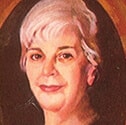What’s your choice for this year’s best conservative book?
The ISI community is filled with thoughtful readers, and each year, one of your suggested authors receives our coveted Paolucci Book Award and a $10,000 cash prize.
So, which new title has caught your eye in 2023? Is it a book you’ve been discussing with your colleagues? Is it one you’ve recommended to your students?
Fill out the simple form below and help us identify the best recent conservative book.
To be considered for the Conservative Book of the Year award, a book must:
- Be a work of nonfiction that was published in and carries a copyright date of 2023. (It can be any book published so far in 2023—or any book set to be published by Dec. 31, 2023.)
- Advance our understanding of conservative principles.
- Make an outstanding contribution to the literature on the subject
- Avoid factional or partisan argumentation
Recent winners of ISI’s Conservative Book of the Year award include Dan Mahoney for The Statesman as Thinker, Victor Davis Hanson for The Dying Citizen, Wilfred M. McClay for Land of Hope, Yoram Hazony for The Virtue of Nationalism, and Rod Dreher for The Benedict Option.


